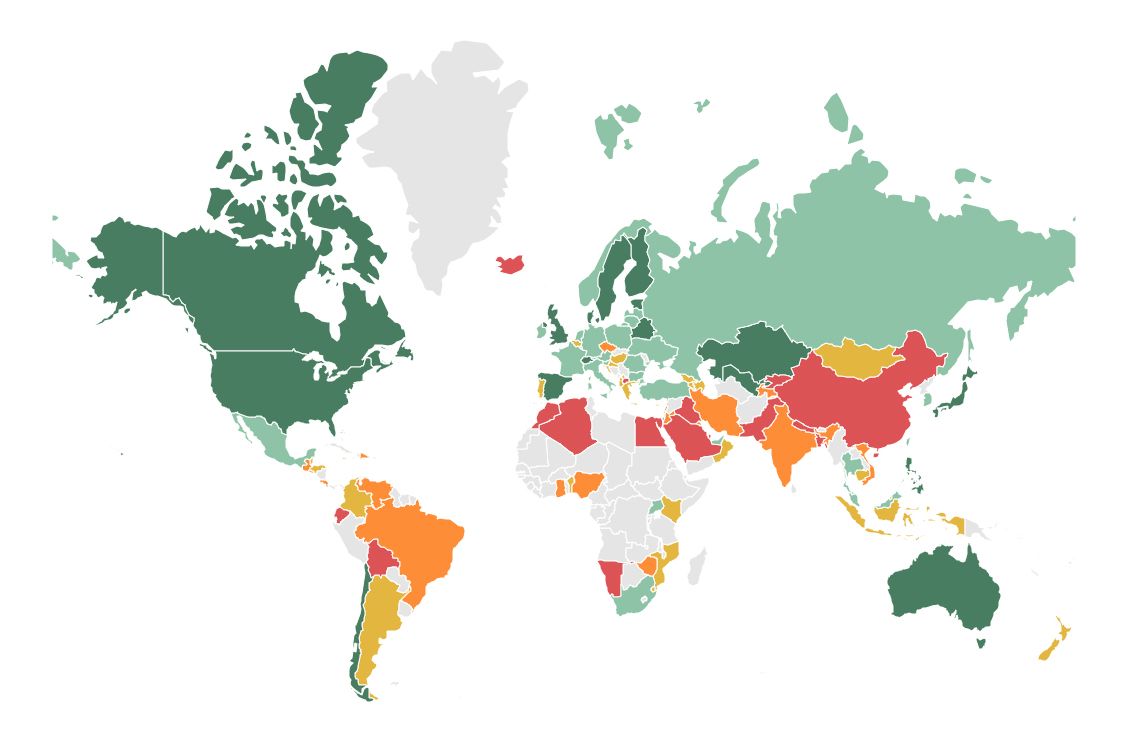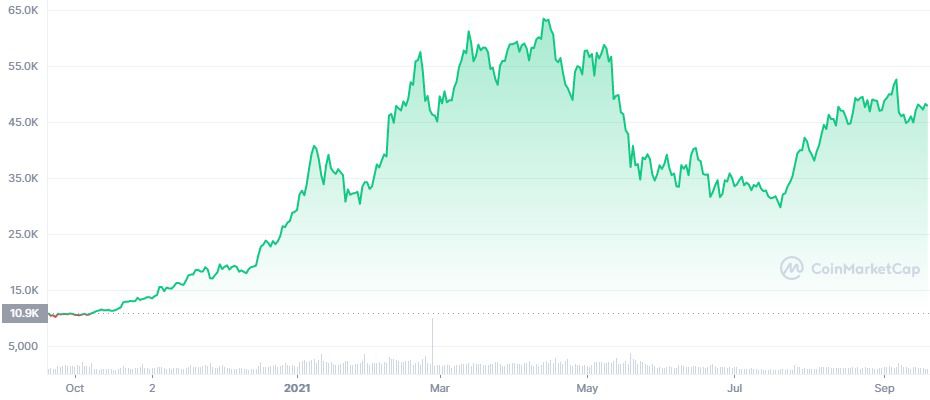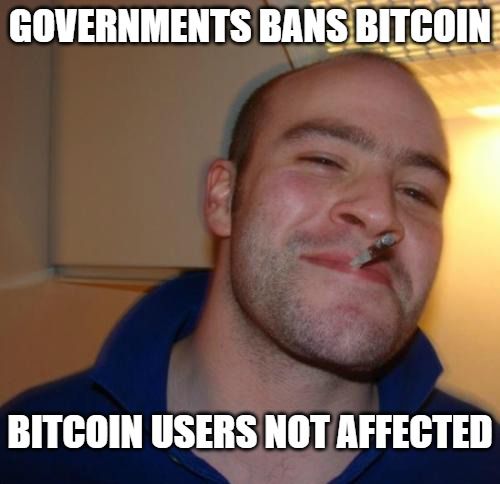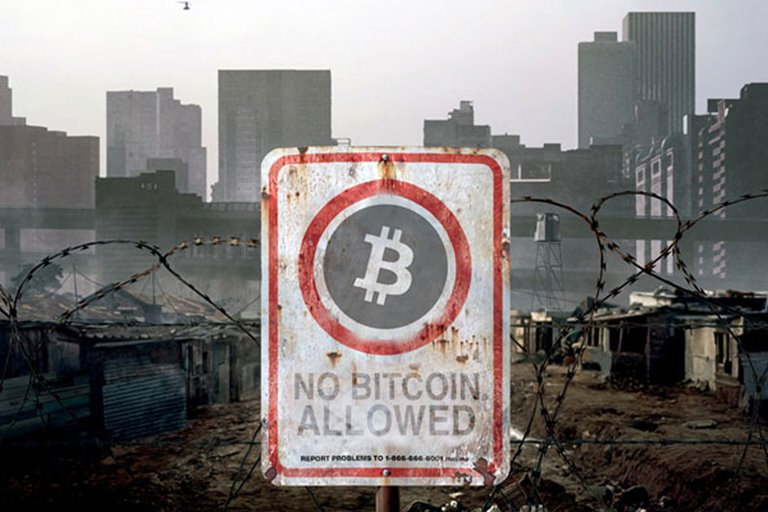Can Governments Ban The Use Of Bitcoins And Other Digital Currencies?
Banning The Use Of Bitcoin And Other Digital Currencies By Governments Is One Of The Concerns Of The People Of Any Country, But Will This Concern Go Away Over Time?
Bitcoins And Other Digital Currencies, Many governments have enacted various laws to allow people to use bitcoin. Some have imposed bans, But enforcing these bans or restrictions comes with challenges.
The number of users of cryptocurrencies, especially bitcoin, is increasing daily, even with some censorship, and the market value of these digital assets around the world is increasing day by day.
However, there are still concerns in many countries about government bans and legislation.

Some see the existence of bitcoin in the interest of governments and do not worry about its ban by governments; Others saw the digital currency as a threat to traditional financial systems and believed that governments would sooner or later suppress bitcoin and other digital currencies.
Due to the anonymity of individuals in bitcoin transactions, this digital currency is prevalent among criminals and is widely used for drug trafficking, money laundering and ransomware; But declaring a ban on its use by governments varies from country to country.
The use of bitcoin is banned in many countries.
The use of bitcoin has been banned in some countries; So it can say that governments can stop activities related to bitcoin and other digital currencies.
A handful of countries have now banned the ownership or use of bitcoin in any way. These countries are Algeria, Ecuador, Egypt, Nepal and Pakistan.
There is a relative ban on this digital currency in some other countries, such as Saudi Arabia and Taiwan. Financial institutions are not allowed to trade in digital currencies or make transactions through bitcoin.
According to The Economist, the vast majority of countries that have imposed restrictions on the use of bitcoin or banned it altogether are relatively low-democracy.
Bitcoin crackdown in China
In 2021 (1400), among all the countries that have taken a hostile stance against Bitcoin, the Chinese government has taken the most aggressive measures against this digital currency. It suppressed bitcoin mining and related companies under the pretext of its destructive environmental effects (and the launch of the national cryptocurrency, Digital Yuan).

The ban on digital currency trading has long been in place in China. Still, in 2021, the People’s Bank of China (PBoC) enacted cryptocurrency and banking activities to end cryptocurrency and digital currency mining activities, forcing miners to migrate to other countries.
Before the crackdown on digital currency-related activities, China accounted for about two-thirds of the bitcoin mining industry.
Following the ban on miners in the country and their mass exodus, many leading exchanges, such as Hubei or Oki Exchange, refused to provide services to Chinese users. Even the accounts of cryptocurrencies on the popular Weibo platform block.
Despite the Chinese government’s efforts to combat the spread of digital currencies, many people continue to operate exchanges using virtual private networks (filter breakers).
Bitcoin plummeted after news broke of miners’ ban in China. Still, the value of this digital currency is rising again, and it seems to have survived the recession caused by the Chinese government’s repression.

Is the use of bitcoin banned in the United States?
Bitcoin-related activities are now legal in the United States.
SEC and the country’s securities (SEC) announced that the Bitcoin category of protection is not the commission overseeing the futures commodities (CFTC) in 2015, digital currencies in the type of commodities such as gold and, according to the classification of activities Declared them related legal.
In addition, the Financial Crimes Network (FinCEN) in this country in 2013 (2013) issued guidelines for using bitcoin, according to which investing in bitcoin and using it as a payment method if the seller agrees. The product or service provider is unrestricted.
Depending on the state and federal laws in the United States, the regulation of bitcoin-related activities may vary from state to state. In Hawaii, for example, businesses related to Bitcoin and other digital currencies must register for a money transfer license. Still, in Wyoming, people can use cryptocurrencies like Fiat money and do not need a permit.
Any ban or restriction on bitcoin activities in the United States will deal a severe economic blow to the country.
There is currently no evidence that Bitcoin is restricted in the United States. Still, in theory, the possibility of strict legislation in the volatile ecosystem of this digital currency can not be ruled out, and there are still many risks to the activities associated with these cryptocurrencies. For example, Gary Gensler, chairman of the U.S. Securities and Exchange Commission, described bitcoin as a speculative asset and digital currencies as a tool to facilitate criminal activity, or Sen. Elizabeth Warren raised concerns about the dangers of using digital currencies in opaque financial systems.
With billions of American companies investing and speculation about setting up the first mutual fund (EFT) on bitcoin, there seems to be a risk in the United States of banning the use of this digital currency.
Marshall Heiner, CEO of Metal Pay, says about the possibility of banning bitcoin:
Bitcoin has infiltrated the US financial system, both culturally and technologically, beyond what can be sanctioned.
The crackdown on bitcoin means shutting down billions of dollars in assets, destroying tens of thousands of jobs, sending the innovation overseas, and creating a black market for bitcoin.
Bitcoin suppression is not easily possible.
It is entirely up to governments to ban bitcoin-related activities, But implementing such a ban will be fraught with difficulties in many countries. Having access to the internet is enough for people to get the bitcoin wallet software with a bit of effort, execute nodes and perform their transactions with difficulty.

According to the advertising agency We Were Social in 2019 (2009), about four per cent of Internet users in Egypt have passwords. In the first quarter of 2020, QuinmarketCup named Pakistan one of the fastest-growing countries in the world in digital currencies.
Similarly, even in countries with strict controls over the Internet, there are various tools to circumvent these restrictions, and anyone can use a low-cost radio software (SDR) dongle and an antenna via a Blockstream satellite. ) to block China Bitcoin access and to circumvent restrictions on activities in this field.
Heiner talks about imposing restrictions on digital currencies:
The United States may impose stricter regulations on the sale and purchase of bitcoins, But enforcing a comprehensive ban would be impossible.
Conclusion
By enforcing laws and imposing restrictions, governments can create problems for users to use digital currencies; But not only does this not discourage people from working in this field, but it may also be an incentive for more people to approach it.
Seif al-Din Amos, a leading economist and author of the Bitcoin Standard Book, sees government restrictions on bitcoin and restrictions on people’s financial freedoms as the only way to get more attention to the field and cryptocurrencies. He says:
A bank that does not allow you to buy bitcoins through your bank account is advertising for bitcoins.
Amos’s proposed solution to reduce demand and motivate people to use bitcoins and digital currencies is to create better economic conditions. With Bitcoin becoming the currency of El Salvador and the step-by-step use of this digital currency in Ukraine, it seems that it is finding its way more and more in societies and is welcomed by more and more countries.
With the legalisation of bitcoin use in each country, the likelihood of a ban on this digital currency in other countries will decrease.
What do you think about government restrictions or bans on activities related to bitcoin and other digital currencies?











